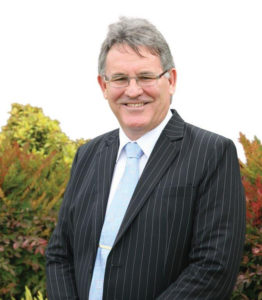
Pakuranga College principal Michael Williams says he is very disappointed with some educators saying they are not `babysitters’ as the nation moves closer to Alert Level 3 of New Zealand’s Covid-19 lockdown.
Strong opinions have been expressed in response to Prime Minister Jacinda Ardern announcing that early childhood centres and schools will be available up to Year 10, with attendance voluntary at Alert Level 3.
Educators annoyed at being put at risk as parents return to the workforce have made headlines saying they are not `de facto daycare centres’ or `babysitters’ and are being treated like ‘sacrificial lambs’.
The former president of the Secondary Principals Association of New Zealand (SPANZ), Williams says it’s time educators stepped up.
“I’ve told our staff at Pakuranga College that this is the time to contribute and provide service to our community,” he told the Times between Google meetings with staff.
“So many parents have had it tough and are struggling. There’s been a lot of stress with people getting paid less or being made redundant,” he says.
“As businesses may start, we will do whatever it takes to help families out.
“Some of the parents are essential workers and they have worked day and night to look after our community and this is the least we can do as our Year 9 and 10 return to school.”
Williams says that the teachers have had it good as their salaries have not been affected and no one has lost their jobs.
“But there is a lot of financial stress in our communities and the lockdown has had a huge impact on families, which may not be very visible since we are all in our bubbles. It’s all the more reason for us to step up to the challenge and help parents.”
He says that in Level 3, the teacher’s role will be more of supervision. Students will continue to do online learning in small groups as they sit a metre away in class.
“It will be refreshing for students who have been isolated to have different people to talk to at school,” he points out.
“There will be no sports, cultural or leadership council activities but the students get to make some social connections which are good for our mental wellbeing.”
And while digital learning has been part of the college curriculum for a while now, Williams says they have been actively engaging with students online throughout the four-week lockdown period.
“The positives are that students are taking more responsibility for their learning now and are extremely engaged. We have been closely monitoring students—those that ask online questions and finish their project work and those who may not.
“I’ve asked my staff to follow-up not just by email but also by a telephone call if needed as human contact is very important.”
He says that some of the feedback from students was asking teachers to slow down.
“This has also given an opportunity for our students to do some base learning as internal assessments were pushed behind.
“I’m sure we will recover soon from all this and all students will be back in school in May as we will move to Level 2.”









